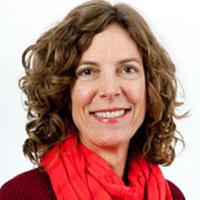The 2024 Nobel Peace Prize has been awarded to Nihon Hidankyo, a Japanese organization of Hiroshima and Nagasaki atomic bombing survivors, for working towards international nuclear disarmament.
Below is a statement by Dr. Gregory Kulacki, who has worked with the disarmament community in Japan in his capacity as East Asia project manager with the Global Security Program at the Union of Concerned Scientists.
“This award is long overdue. The Hiroshima and Nagasaki survivors’ testimonies are the most compelling arguments against the pundits and policymakers who associate nuclear weapons, and the horrifyingly immoral effects of using them, with safety and security.
“The Nobel Peace Prize Committee rightly chose Nihon Hidankyo and I am certain the group and would gladly exchange the award for nuclear-armed countries negotiating in good faith to eliminate nuclear weapons. Not only are nuclear-armed countries not meeting their legal obligation to pursue disarmament, they are investing huge sums of money in modernizing and in some cases expanding their nuclear arsenals, signaling they are committing to nuclear weapons for decades to come. Meanwhile, the war in Ukraine and tensions in East Asia threaten to pull nuclear-armed countries into direct conflict. Russia President Vladimir Putin continues to threaten to use nuclear weapons in Ukraine and last month said Russia would revise its nuclear doctrine to potentially lowering the bar for their use.
“As the Nobel committee itself stated, the ‘taboo against the use of nuclear weapons is under pressure.’ Coercive nuclear threats are substituting for effective diplomacy. The testimony of the Hibakusha demonstrates the grave risks we still run by the very existence of nuclear weapons, which have only become more destructive. It’s time for the world to not only acknowledge the risks of nuclear weapons but take action to enact a permanent international ban against them.”
See the UCS video "The Pain and Politics of Hiroshima," which includes interviews with Hibakusha and Kulacki, who spoke about his nuclear disarmament work, including the uphill battle against the Japanese and U.S. governments.
